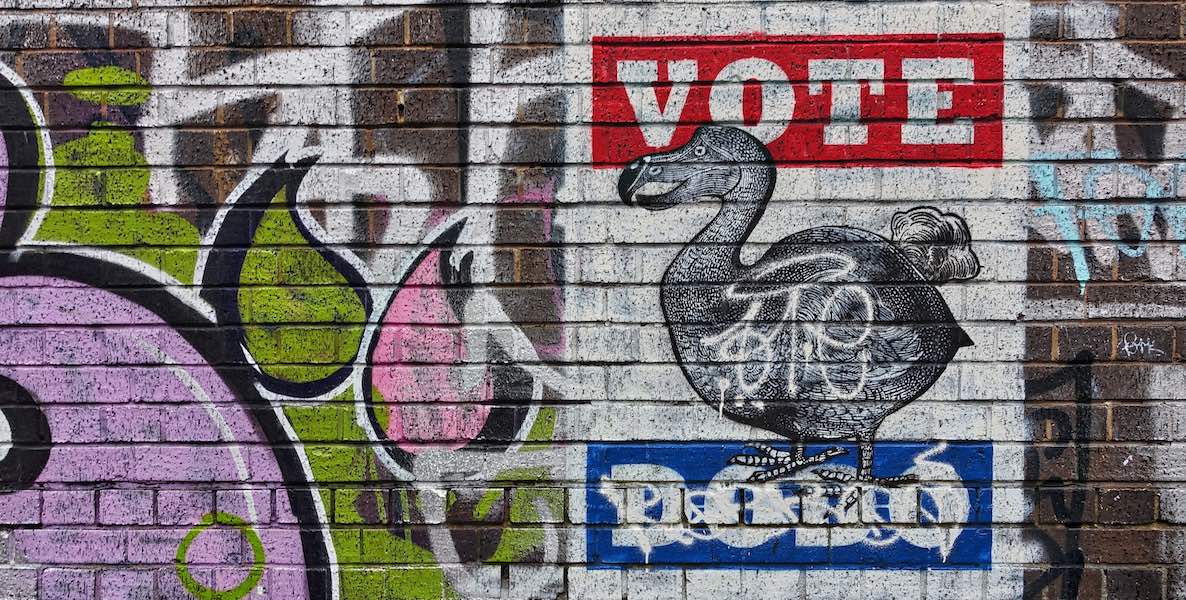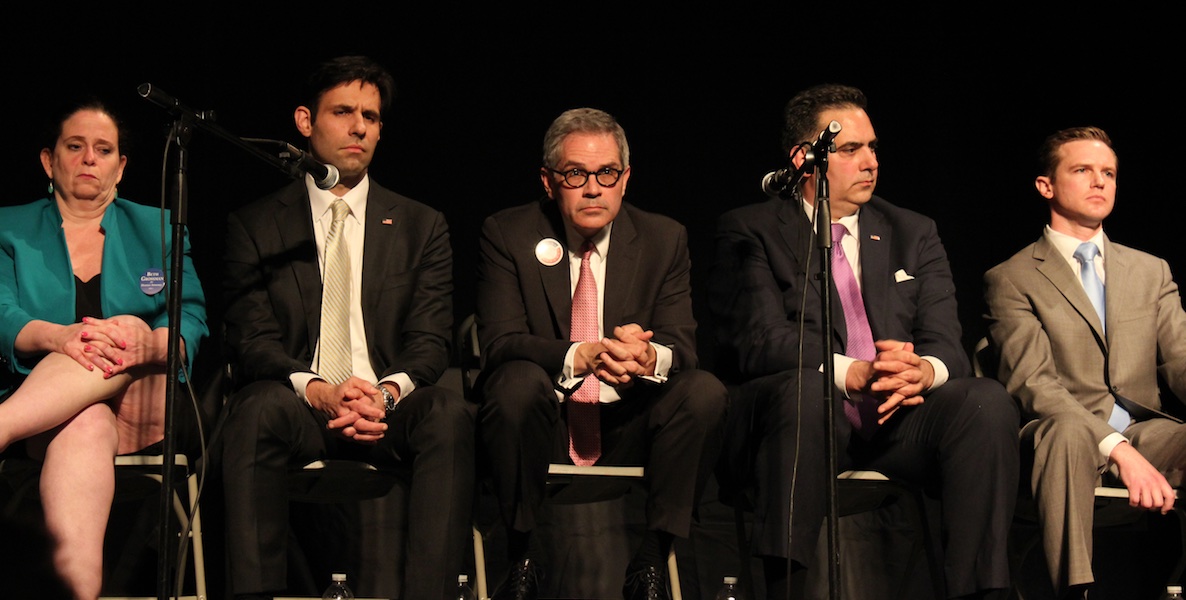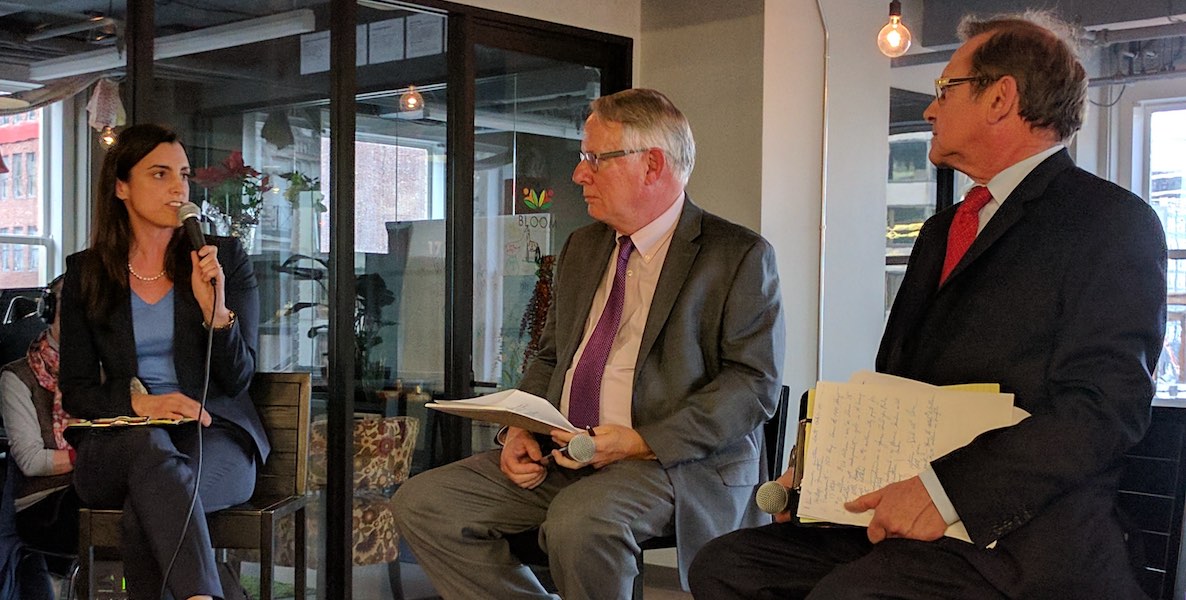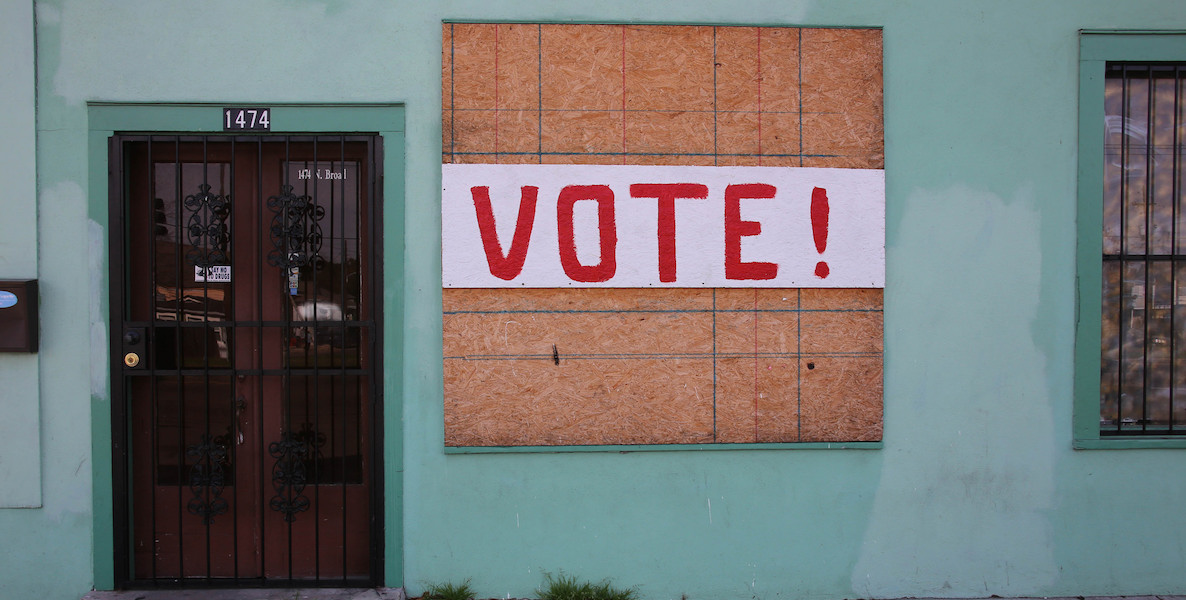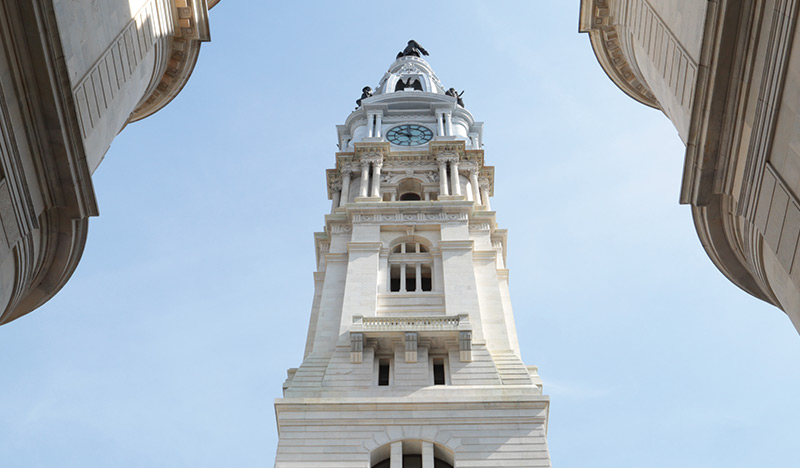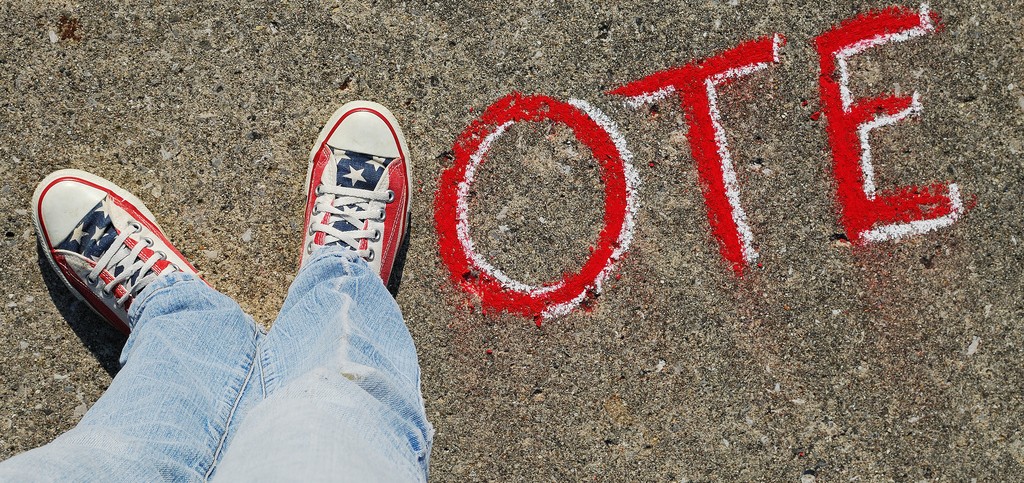May 16, 2017 is a Primary Election, meaning Philly voters will select candidates from the Democratic and Republican parties to face off in the November general election. When it first came into widespread use, the primary was seen as a progressive attempt to wrest candidate selection out of the hands of party leaders, who used to decide such things in smoke-filled backrooms.
In Philly, where the Democratic Party has dominated since the 1950s, registered Republicans generally have fewer candidates to choose from in these elections. While it would be irresponsible to say it’s inevitable that the winner of the Democratic primary will win in the November general election, history shows it’s practically inevitable.
CAN I VOTE IN THIS ELECTION?
Are you registered to vote in Pennsylvania as a resident of Philadelphia? If so, the short answer is, yes. (If you’re not sure about your registration status, check here.)
Even if you are not registered with either major party, you can absolutely vote … on the ballot questions. That’s still pretty important. If approved by a simple majority of voters, these amendments to the city charter will become law. More on those below.
But when it comes to the candidates, only registered Democrats and Republicans are allowed to vote. Why? Because Pennsylvania is one of just 12 states that runs what’s called a “closed primary,” where only party members can vote on their candidates for the November general election.
Side Note: Not a fan of that system? Let your state representatives and senators know. There are other options. Many states have open primaries, where voters of any affiliation may select a single party’s ballot and vote for candidates. Other states offer semi-closed primaries, where voters must be registered to a party to vote that ballot, but may switch their affiliation day-of.
WHEN ARE THE POLLS OPEN?
Polls are open from 7am to 8pm. Remember that you can get in line to vote before 7am, and you can vote as long as you were in line before 8pm, even if you don’t get into the actual voting booth until later. Also remember: Polling places change, so make sure you know where to go by checking with the state.
WHY SHOULD I VOTE IN THIS ELECTION?
Three reasons, actually:
- Because electing a District Attorney is a big deal — bigger deal than most people know. The DA wields an enormous amount of power, arguably more than the Mayor when it comes to public safety and justice. If you care about Philly’s status as a Sanctuary City, keeping residents safe, prosecuting corrupt officials, justice for victims, the handling of police-involved shootings, mass incarceration or juvenile justice, make this race a priority.
- Because you care how your tax dollars are spent. The City Controller approves disbursements, audits expenditures, and investigates tips and other information that may suggest fraud. And if you know anything about Philly politics, you know fraud is not a purely hypothetical situation.
- Because low turnout means your vote matters. In 2009 — the last time Philly had a contested District Attorney race — only 13 percent of Philly voters came out to the polls. Compare that to 27 percent turnout in Philly’s 2015 Mayoral Primary, and 39 percent in the 2016 Presidential Primary. While some are hoping for a Trump-era bump in local off-cycle elections, this wasn’t the case in Los Angeles’s recent primary, and it’s likely Philly’s turnout will stay below 15 percent. If there is a silver lining to this dismal forecast, it’s that your single vote carries even more weight than usual.
WHAT’S WITH ALL THESE JUDICIAL CANDIDATES?
Pennsylvania is one of eight states that elect judges through partisan elections at all trial court levels. If you don’t recognize a single name in these races, or you feel a little unqualified to determine their ability to serve as an impartial judge, you’re in good company. We recommend deferring to the Pennsylvania and Philadelphia Bar Associations. Both organizations have way more expertise in this field than the average voter, and they conduct substantive reviews of every candidate. We’ve listed their overall recommendation next to each judicial candidate, but you can also read more detailed assessments at the links above. It’s kind of like Yelp for judges.
All caught up? Cool. Here’s what you’ll see on your ballot and what it means:
DISTRICT ATTORNEY
This race won’t actually be at the top of your ballot (it will be buried beneath the local and statewide judicial races mentioned above), but it should be top of mind. As chief prosecutor for the City, the District Attorney determines what crimes will be prosecuted, and the severity of the charges. You may be asking, “Don’t judges have the final say in sentencing?” Sure, if the case goes to trial. But the vast majority of cases are actually decided by plea bargain, meaning the DA’s office has an incredible amount of power and discretion.
Somewhere between his $62,000 settlement to the Philadelphia Ethics Board and his 23-count federal indictment on corruption and bribery charges, incumbent Seth Williams made what many would call a prudent decision not to seek reelection. Since then, this wide-open race has rapidly evolved from a fight for the “least-likely-to-be-indicted” into more substantive talk of policy and justice. You can watch a recent debate here.
Democrats will pick up to one candidate:
- Rich Negrin
- Joe Khan
- Michael W Untermeyer
- Tariq Karim El-Shabazz
- Lawrence Krasner
- Teresa Carr Deni
- John O’Neill
Republicans get all the thrills of pushing a ballot button, without all of the anxiety of having to choose. Beth Grossman is the lone “R” in this one.
CITY CONTROLLER
The City Controller is the top fiscal watchdog of the city, auditing expenditures of the city government. This race tends to take a back seat to the more high-profile District Attorney contest. It’s also incredibly important, which is why we organized a recent debate with the Committee of Seventy. Watch our Facebook Live recording here.
Democrats can vote to reelect incumbent Alan Butkovitz, or opt for challenger Rebecca Rhynhart, Mayor Jim Kenney’s former Chief Administrative Officer.
Republicans have a single candidate again: Michael Tomlinson is unopposed.
JUSTICE OF THE SUPREME COURT
This statewide race is for a seat in Pennsylvania’s top court, which handles appeals and disputes from the lower courts.
Dwayne Woodruff is the unopposed Democratic candidate. He is “Recommended” by PA Bar Association.
Sallie Mundy is unopposed on the Republican side. She is “Highly Recommended” by PA Bar Association.
JUDGE OF THE SUPERIOR COURT
The PA Superior Court is a statewide entity that handles appeals from the Courts of Common Pleas in criminal cases and in matters involving children and families. It usually hands down the final decision in these matters.
Democrat (Vote for up to 4)
- Carolyn H Nichols – “Recommended” by PA Bar Association
- Geoff Moulton – “Highly Recommended” by PA Bar Association
- Maria Mclaughlin – “Recommended” by PA Bar Association
- Debbie Kunselman – “Highly Recommended” by PA Bar Association
- Bill Caye – “NOT Recommended” by PA Bar Association
Republican (Vote for up to 4)
- Emil Giordano – “Highly Recommended” by PA Bar Association
- Craig Stedman – “Highly Recommended” by PA Bar Association
- Wade A Kagarise – “Highly Recommended” by PA Bar Association
- Mary Murray – Not assessed by PA or Philadelphia Bar Association
- Paula A Patrick – “Highly Recommended” by PA Bar Association
JUDGE OF THE COMMONWEALTH COURT
This intermediate court is unique to Pennsylvania. It is responsible for cases involving government agencies and regulatory bodies, as well as any lawsuits filed by or against the Commonwealth. It’s these judges who decide the fate of state laws—something all the more important in the next four years, as Pres. Trump sends issues of health, education, women’s rights and the environment to the states.
Democrat (Vote for up to 2)
- Timothy Barry – “Recommended” by PA Bar Association
- Joe Cosgrove – “Highly Recommended” by PA Bar Association
- Ellen Ceisler – “Recommended” by PA Bar Association
- Todd Eagen – “Recommended” by PA Bar Association
- Irene M Clark – “NOT Recommended” by PA Bar Association
- Bryan Barbin – “Recommended” by PA Bar Association
Republican (Vote for up to 2)
- Paul Lalley – “Recommended” by PA Bar Association
- Christine Fizzano Cannon – “Highly Recommended” by PA Bar Association
JUDGE OF THE COURT OF COMMON PLEAS
This is Pennsylvania’s court of general trial jurisdiction. Philadelphia’s 90 Common Pleas Court judges are divided into trial, family, and orphans’ divisions.
Democrat (Vote for up to 9)
- Stella Tsai – “Recommended” by the Philadelphia Bar Association
- Vikki Kristiansson – ”Recommended” by the Philadelphia Bar Association
- Deborah Cianfrani – ”NOT Recommended” by the Philadelphia Bar Association
- John Macoretta – ”Recommended” by the Philadelphia Bar Association
- Rania Major – ”NOT Recommended” by the Philadelphia Bar Association
- Henry Mcgregor Sias – ”Recommended” by the Philadelphia Bar Association
- Lawrence J Bozzelli – ”Recommended” by the Philadelphia Bar Association
- Vincent Furlong – ”Recommended” by the Philadelphia Bar Association
- Brian Mclaughlin – ”Recommended” by the Philadelphia Bar Association
- Shanese Johnson – ”NOT Recommended” by the Philadelphia Bar Association
- Mark B Cohen – ”NOT Recommended” by the Philadelphia Bar Association
- Daniel R Sulman – ”Recommended” by the Philadelphia Bar Association
- Leon Goodman – ”Recommended” by the Philadelphia Bar Association
- Deborah Canty – ”Recommended” by the Philadelphia Bar Association
- Wendi Barish – ”Recommended” by the Philadelphia Bar Association
- Leonard Deutchman – ”Recommended” by the Philadelphia Bar Association
- Zac Shaffer – ”Recommended” by the Philadelphia Bar Association
- Jennifer Schultz – ”Recommended” by the Philadelphia Bar Association
- Vincent Melchiorre – ”NOT Recommended” by the Philadelphia Bar Association
- Jon Marshall – ”Recommended” by the Philadelphia Bar Association
- David Conroy – ”Recommended” by the Philadelphia Bar Association
- Mark J Moore – ”Recommended” by the Philadelphia Bar Association
- Danyl S Patterson – ”NOT Recommended” by the Philadelphia Bar Association
- Terri M Booker – ”NOT Recommended” by the Philadelphia Bar Association
- Lucretia C Clemons – ”Recommended” by the Philadelphia Bar Association
- Crystal B Powell – ”NOT Recommended” by the Philadelphia Bar Association
- Bill Rice – ”NOT Recommended” by the Philadelphia Bar Association
Republican (Legally you can vote for up to 9. Practically, you can vote for up to 1.)
- Vincent Furlong – ”Recommended” by the Philadelphia Bar Association
JUDGE OF THE MUNICIPAL COURT
At this first level of Pennsylvania’s judiciary, Philadelphia’s Municipal Court judges decide whether serious cases move to the Commonwealth Court, conduct preliminary hearings and arraignments, and set and accept bail in most cases.
Democrat (Vote for up to 2)
- Matt Wolf – ”Recommended” by the Philadelphia Bar Association
- Marissa Brumbach – ”Recommended” by the Philadelphia Bar Association
- George Twardy – ”Recommended” by the Philadelphia Bar Association
- Jon Marshall – ”Recommended” by the Philadelphia Bar Association
- Sherman Toppin – ”NOT Recommended” by the Philadelphia Bar Association
- Bill Rice – ”NOT Recommended” by the Philadelphia Bar Association
JUDGE OF ELECTION AND INSPECTOR OF ELECTION
These folks are your neighbors, and must live in your voting division (e.g. 2-06 means Ward 2, Division 6). Two inspectors in each division make sure the polling machines are up and running on time, and one judge of election ensures everything is setup in compliance with state and local laws.
BALLOT QUESTIONS
Remember, you DO NOT need to be registered as a Democrat or Republican to vote on ballot questions. Getting a city charter amendment on the ballot requires a two-thirds vote of City Councilmembers. Once they are on the ballot, it takes just a simple majority (i.e. greater than 50 percent) of “yes” votes by the public for each amendment to become law.
While they do not endorse candidates, the Committee of Seventy does weigh in on these matters of good governance. You can read their opinion on both questions here and decide for yourself.
PROPOSED CHARTER CHANGE QUESTIONS NO. 1
Shall The Philadelphia Home Rule Charter be amended to allow for the award of certain contracts based on best value to the City? Yes / No
The City Procurement Commissioner is responsible for buying equipment to keep the city running, and contracting for services like construction. Currently, they are obligated to make their selection based on best price, as long as the provider is deemed a “responsible business.” A “yes” vote on this amendment acknowledges that price isn’t always the best indicator of value. Detractors warn the language is too vague, while supporters cite any movement toward value-based purchasing as an improvement to our current method.
PROPOSED CHARTER CHANGE QUESTION NO. 2
Shall The Philadelphia Home Rule Charter be amended to provide for the creation of a Philadelphia Community Reinvestment Commission to be charged with recommending coordinated community reinvestment strategies for the City of Philadelphia by identifying opportunities for public, private, and philanthropic entities to collaborate and leverage their resources for the public good? Yes / No
This amendment would establish a 21-member commission, made up of a mix of Mayoral appointees, Councilmembers, and other city officials. The Commission would develop recommendations to the Mayor and Council to “leverage private, public, and philanthropic resources for the private good.” It’s somewhat unclear what programs or initiatives Council may have in mind. One thing is clear: This commission is just a recommending body–they would not have any authority to create or enact laws.
Header photo by Paul Sableman via Flickr


